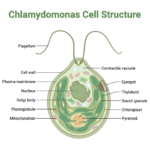Basic Microbiology 7 Views 1 Answers
Infants immediately after birth are often at risk for infection with group B streptococcus. A vaccine is proposed for administration ot women of childbearing years. How can immunizing hte mothers, help hte babies?
Infants immediately after birth are often at risk for infection with group B streptococcus. A vaccine is proposed for administration ot women of childbearing years. How can immunizing hte mothers, help hte babies?
Immunizing mothers with a vaccine against group B Streptococcus (GBS) can help protect infants in several important ways:
- Passive Immunization:
- Antibody Transfer: When a mother is vaccinated, she produces antibodies against GBS. These antibodies are transferred to the fetus through the placenta during pregnancy. The antibodies provide passive immunity to the newborn, which can help protect the baby from GBS infection during the critical early weeks of life before the baby’s own immune system is fully developed.
- Reduced Colonization:
- Maternal Colonization Reduction: Immunizing mothers can reduce the colonization of GBS in the maternal genital tract. Since GBS is often transmitted from mother to baby during delivery, reducing maternal colonization lowers the risk of the baby being exposed to GBS during childbirth.
- Improved Neonatal Outcomes:
- Lower Infection Rates: By decreasing the incidence of GBS colonization and infection in the mother, the risk of early-onset GBS disease in the infant is reduced. This can lead to fewer cases of sepsis, pneumonia, and meningitis in newborns.




